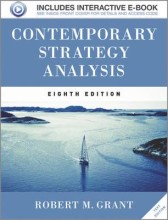Organization Structure and Management Systems ( op 14-09)
7 important questions on Organization Structure and Management Systems ( op 14-09)
Describe a Functional Organization Structure. What are strengths and weaknesses?
Pro's / Strengths
Specialization, direct surveillance from supervisors with same specialization, common pool of knowledge allowing for economy of scale), enables to accomplish functional goals.
Con's / Weaknesses:
More conflict and less coordination, sub-optimization leading to a need of strong formal control, slow reaction to external changes. Hierarchy overload, poor horizontal coordination among departments, less innovation, restricted view on organizational goals
Describe a divisional Organization Structure. What are strengths and weaknesses?
Strengths:
Suited for fast change, satisfied clients due to product responsibility and contact points, high coordination across functions, decentralizes decision making, best in companies with several products.
Weaknesses:
Eliminates economy of scale, poor coordination across product lines, less specialization, makes integration and standardization across product lines difficult.
Describe a Horizontal Organization Structure. What are strengths and weaknesses?
Flexible and rapid response to customer need, directs attention of everyone to production and delivery of value to the customer. Employees have broader view of organizational goals. Promotes teamwork and commitment, improves employees quality of life by sharing responsibility and make decisions.
Con:
Determining core processes to organize around is difficult and time consuming, requires changes in culture and job design and information systems, traditional managers have to give up power and authority. Can limit in-depth skill development
- Higher grades + faster learning
- Never study anything twice
- 100% sure, 100% understanding
Describe a Matrix Organization Structure. What are strengths and weaknesses?
Pro's:
Achieves coordination to meet dual demands from customers, flexible sharing of human resources, suited to complex decisions and frequent changes in unstable environment, provides opportunity for both functional and product development, best in medium-sized firms with multiple products.
Con's:
Dual authority (frustrating), need of interpersonal skills, a lot of meetings and conflicts, will not work if participants stay vertically oriented rather than collegial, requires great effort to maintain power balance
Weber's organizing principles
Specialization through systematic division of labour
Hierarchical structure
Coordination and control through rules and sops
standardized employment rules and norms
separation of management and ownership
separation of jobs and people
formalization in writing of administrative acts, decisions, and rules
What are the benefits and drawbacks of hierarchical structures?
Hierarchies solve the problem of coordination. And also cooperation: Top Management Team is challenged but it can solve the problem of cooperation.
Drawbacks:Inertia, alienation, lack of initiative and innovation.
What does the contingency theory implies Concerning Mechanistic and Organic organizations?
Mechanistic: (mc donalds) Standardized, lot of products/services, stable environment --> more efficiency.
Organic: (google) unstable environment, lot of innovation, heterogeneous output required.
The question on the page originate from the summary of the following study material:
- A unique study and practice tool
- Never study anything twice again
- Get the grades you hope for
- 100% sure, 100% understanding
































